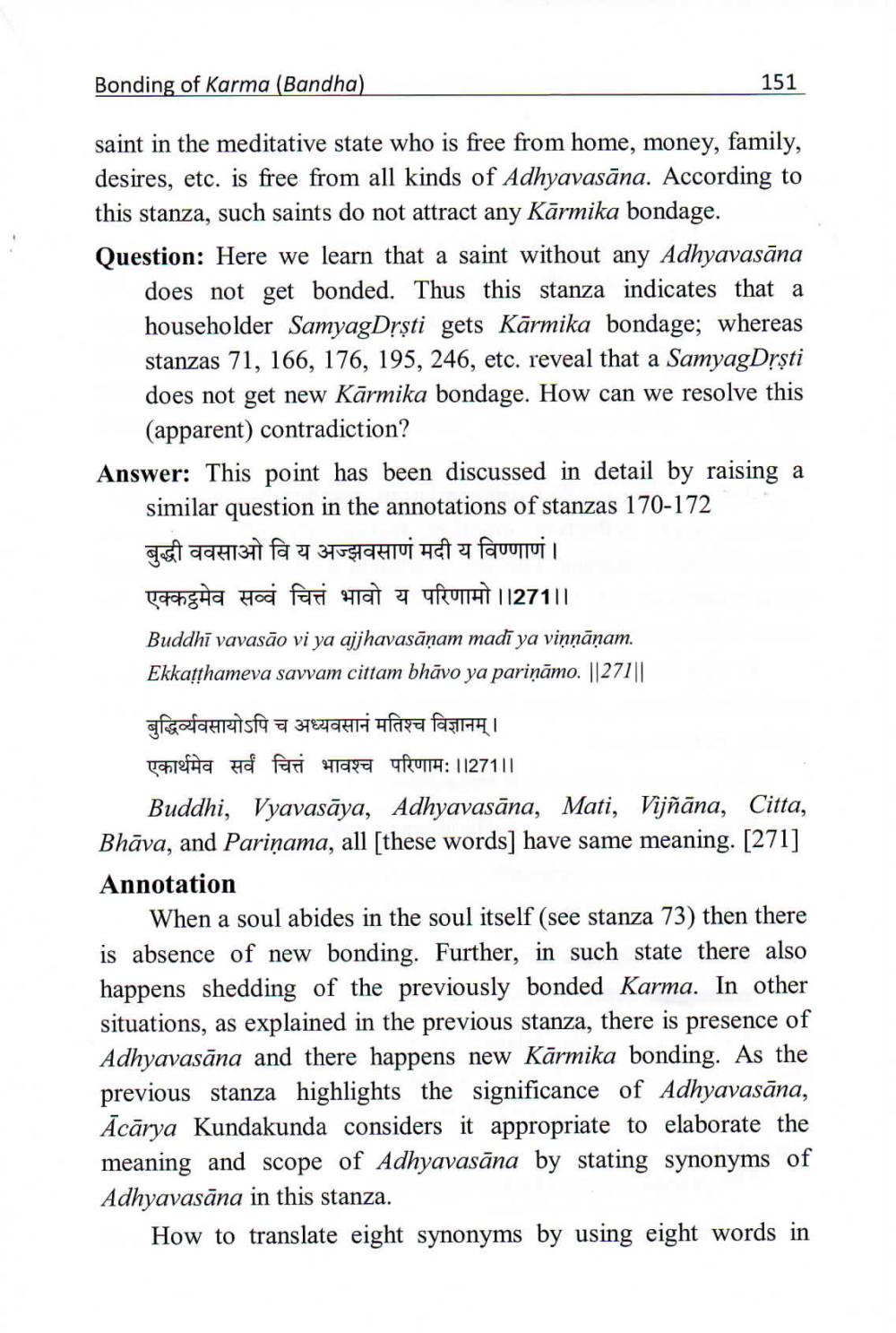________________
Bonding of Karma (Bandha)
saint in the meditative state who is free from home, money, family, desires, etc. is free from all kinds of Adhyavasana. According to this stanza, such saints do not attract any Karmika bondage. Question: Here we learn that a saint without any Adhyavasana does not get bonded. Thus this stanza indicates that a householder SamyagDrști gets Kärmika bondage; whereas stanzas 71, 166, 176, 195, 246, etc. reveal that a SamyagDrşti does not get new Karmika bondage. How can we resolve this (apparent) contradiction?
151
Answer: This point has been discussed in detail by raising a similar question in the annotations of stanzas 170-172
बुद्धी ववसाओ वि य अज्झवसाणं मदी य विण्णाणं ।
एक्कट्ठमेव सव्वं चित्तं भावो य परिणामो ||271||
Buddhi vavasão vi ya ajjhavasanam madi ya viņṇānam. Ekkaṭṭhameva savvam cittam bhavo ya parināmo. ||271||
बुद्धिर्व्यवसायोऽपि च अध्यवसानं मतिश्च विज्ञानम् ।
एकार्थमेव सर्वं चित्तं भावश्च परिणाम: ||271।।
Buddhi, Vyavasaya, Adhyavasāna, Mati, Vijñāna, Citta, Bhāva, and Parinama, all [these words] have same meaning. [271] Annotation
When a soul abides in the soul itself (see stanza 73) then there is absence of new bonding. Further, in such state there also happens shedding of the previously bonded Karma. In other situations, as explained in the previous stanza, there is presence of Adhyavasana and there happens new Karmika bonding. As the previous stanza highlights the significance of Adhyavasana, Acarya Kundakunda considers appropriate to elaborate the meaning and scope of Adhyavasana by stating synonyms of Adhyavasana in this stanza.
How to translate eight synonyms by using eight words in




